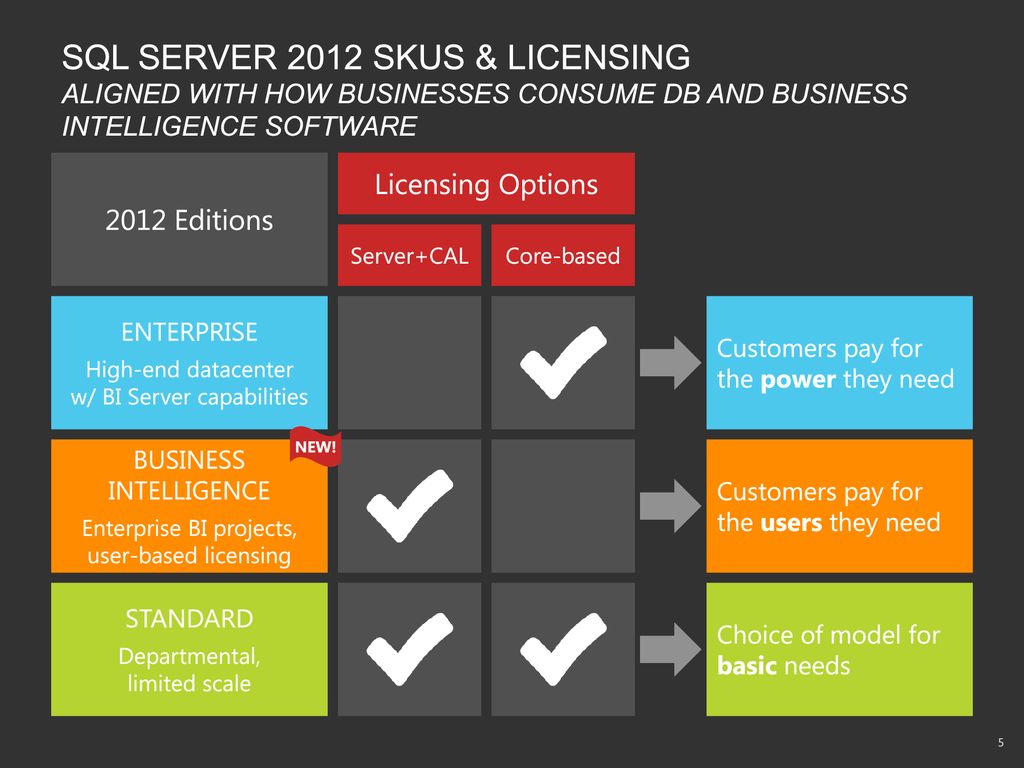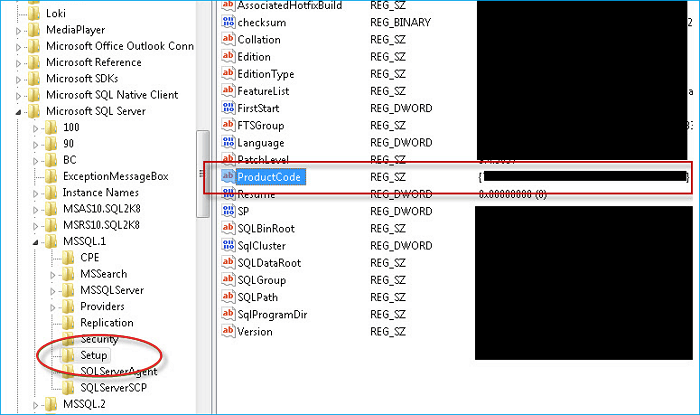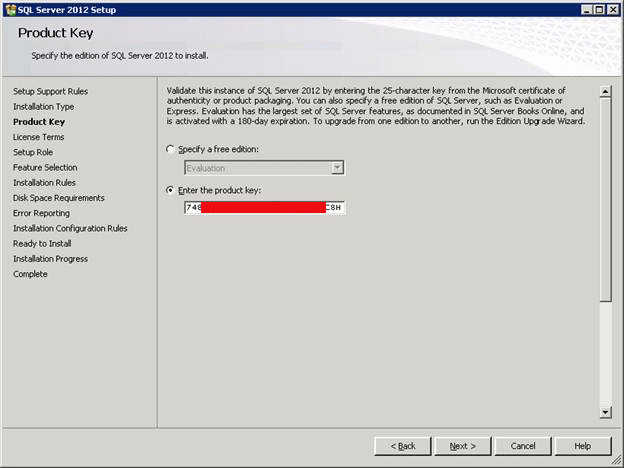
- Sql server 2012 enterprise edition licensing archive#
- Sql server 2012 enterprise edition licensing upgrade#
- Sql server 2012 enterprise edition licensing plus#
- Sql server 2012 enterprise edition licensing windows#
Sql server 2012 enterprise edition licensing archive#
This allows you to very quickly load or archive huge chunks of data in an online operation. This is an extremely important limit, especially for data warehouse servers, which feel about memory and CPU like marathon runners do about pancakes and syrup. This is one list, based on a common set of needs I see at client sites, including performance, resource management, data warehousing, reporting, and change tracking. One top 10 list of Enterprise advantagesĮvery shop has their individual needs and wants, and so every shop will have a different top 10 (or 8, or 17) reasons why Enterprise would benefit them over Standard. Doesn't really excuse MS, even their licensing "experts" never bothered to point this out in the course of the past nine years, but at least it explains why not many people seem to "know" about this.In celebration of the impending SQL Server 2014 release, and in recognition that a large percentage of my clients are on that cusp of the Standard/Enterprise licensing decision for the currently available version…let’s talk about SQL Server 2012! Specifically, why Enterprise edition might be a huge advantage – or even an imperative – for your shop. 20+ cores means you have a seriously loaded database, a budget that doesn't even flinch at buying a server that costs 6 figures, and multiple levels of bosses that are all on the same page. Even then, if scale- out strategy is usually "the norm," you'll normally have not-quite-beast-level servers. in fairness to the community at large, most DBAs don't ever see a server with more than 20 cores unless they're in a large enterprise environment. This is also assuming you didn't monkey with processor affinity.

"40" and "twice" are assuming HT is enabled if not, half those figures. With the Core edition, you'll see twice as many rows as you have cores. Cores in-use show "VISIBLE ONLINE." If you have more than 20 cores, but the non-core edition, you'll see only 40 rows with that status. Check sys.dm_os_schedulers, in particular the "status" column. You can verify this yourself, the same way I finally discovered it, on a server with more than 20 cores of course.
Sql server 2012 enterprise edition licensing plus#
I'm lucky though - I have a cool boss, plus three teammates and two lead developers that also had no clue about this, backing me up. yeah, we were effectively wasting 40 core licenses. I ran into this the hard way, on a server with 60 cores, running for over a year, and because admittedly I was not paying enough attention. Or be sure you have an unloved teammate you can throw under the bus. documentation about the "Core-licensing" edition is extremely lacking. Yes, that sucks - so if your boss is itching for a reason to fire you, be sure to point out that yeah. Yes - that means you're wasting a LOT of money.

Even if you're paying for core licensing, and paying for more than 20 cores on a server, it's still capped at 20. The non-core edition, as others stated, is intended for Server/CAL licensing. If your host has 40 cores but you never assign 20+ to any guest, don't worry about it. I'm not sure how or why anyone would give a VM more than 20 cores (at that point your host is already a dedicated server most likely), but if so.
Sql server 2012 enterprise edition licensing windows#
Just how many are assigned to the Windows VM. Virtualization side-note: this has nothing to do with cores on the host.
Sql server 2012 enterprise edition licensing upgrade#
As in it takes longer just to get to the Upgrade button in setup, than to actually perform the upgrade when you hit it. The good news: an edition upgrade from non-core to core is utterly painless and very fast. I ran into the specific question "when do I NEED the Core edition, vs.

This is not a guess, it's a provable certainty. Short: The regular "Enterprise" (non-"core") edition caps the cores at 20, period.

Sorry to necro here, but just in case someone else hits this page with a similar question, and since there's so little documentation about this.


 0 kommentar(er)
0 kommentar(er)
